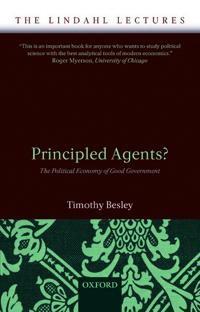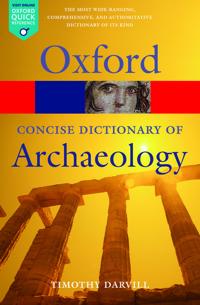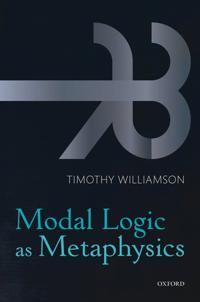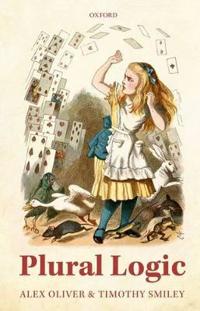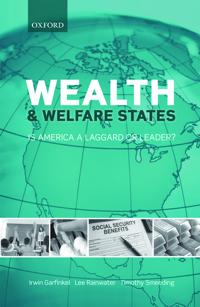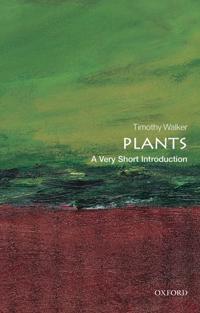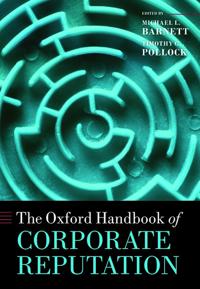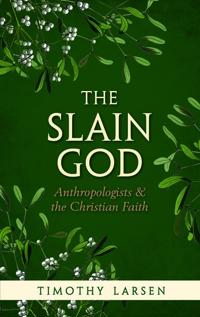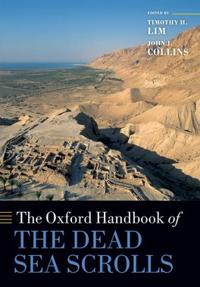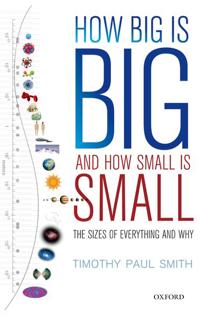Principled Agents? (Häftad)
avTimothy Besley
ISBN: 9780199283910 - UTGIVEN: 200708What is good government? Why do some governments fail ? How do you implement political accountability in practice? What incentives do you need to put in place to ensure that politicians and public servants act in the public interest and not their own? These questions and many more are addressed in T[...]
Crisis of Doubt: Honest Faith in Nineteenth-Century England (Inbunden)
avTimothy Larsen
ISBN: 9780199287871 - UTGIVEN: 2006-11-16Naval Engagements: Patriotism, Cultural Politics, and the Royal Navy 1793-1815 (Inbunden)
avTimothy Jenks
ISBN: 9780199297719 - UTGIVEN: 2006-10-19The Concise Oxford Dictionary of Archaeology (Pocket)
avTimothy Darvill
ISBN: 9780199534043 - UTGIVEN: 201002The most wide-ranging, comprehensive, and up-to-date dictionary of archaeology available. Over 4,000 entries cover the terms encountered in academic and popular archaeological literature, in lectures, and on television. Topics covered include artefacts, techniques, terminology, people, sites, and pe[...]
Selected Philosophical Writings (Pocket)
avAquinas, Saint Thomas, Timothy McDermott, Aquinas, Saint Thomas
ISBN: 9780199540273 - UTGIVEN: 200808St Thomas Aquinas (1225-1274) saw religion as part of the natural human propensity to worship. His ability to recognize the naturalness of this phenomenon and simultaneously to go beyond it, to explore spiritual revelation, makes his work fresh and highly readable today. While drawing on a strong di[...]
Cardiac Electrophysiology and Catheter Ablation (Pocket)
avKim Rajappan, Yaver Bashir, Timothy R. Betts
ISBN: 9780199550180 - UTGIVEN: 2010-08-13Modal Logic as Metaphysics (Inbunden)
avTimothy Williamson
ISBN: 9780199552078 - UTGIVEN: 201303Are there such things as merely possible people, who would have lived if our ancestors had acted differently? Are there future people, who have not yet been conceived? Questions like those raise deep issues about both the nature of being and its logical relations with contingency and change. In Moda[...]
Plural Logic (Inbunden)
avAlex Oliver, Timothy Smiley, Alex Oliver
ISBN: 9780199570423 - UTGIVEN: 2013-07Alex Oliver and Timothy Smiley provide a natural point of entry to what for most readers will be a new subject. Plural logic deals with plural terms ('Whitehead and Russell', 'Henry VIII's wives', 'the real numbers', 'the square roots of -1', 'they'), plural predicates ('surrounded the fort', 'are p[...]
Corruption and Misuse of Public Office (Inbunden)
avQC Colin Nicholls, Timothy Daniel, Alan Bacarese, John Hatchard
ISBN: 9780199577279 - UTGIVEN: 2011-09-29Pickard's Manual Of Operative Dentistry (Pocket)
avAvijit Banerjee, Timothy F. Watson
ISBN: 9780199579150 - UTGIVEN: 2011-01-13An essential purchase on all reading lists, Pickard's describes clearly and concisely the indications and methods for all common operative and conservative procedure in dental practice. Procedures and techniques are illustrated in full colour and, where appropriate, step-by-step sequences are given.[...]
Wealth and Welfare States (Häftad)
avIrwin Garfinkel, Lee Rainwater, Timothy Smeeding
ISBN: 9780199579310 - UTGIVEN: 201002This book explores the role of the welfare state in the overall wealth and wellbeing of nations and in particular looks at the American welfare state in comparison with other developed nations in Europe and elsewhere. It is widely believed that the welfare state undermines productivity and economic [...]
Plants (Häftad)
avTimothy Walker
ISBN: 9780199584062 - UTGIVEN: 201204Plants form a fundamental element of the biosphere, and the evolution of plants has directly affected the evolution of animal life and the evolution of the Earth's climate. Plants have also become essential to humans not only in the form of cereal crops, fruit, and vegetables, but in their many othe[...]
The Oxford Handbook of Corporate Reputation (Inbunden)
avMichael L. Barnett, Timothy G. Pollock, Michael L. Barnett
ISBN: 9780199596706 - UTGIVEN: 201209What does it mean to have a "good" or "bad" reputation? How does it create or destroy value, or shape chances to pursue particular opportunities? Where do reputations come from? How do we measure them? How do we build and manage them? Over the last twenty years the answers to these questions have be[...]
Ghost Stories in Late Renaissance France: Walking by Night (Inbunden)
avTimothy Chesters
ISBN: 9780199599806 - UTGIVEN: 2011-01-13Administrative Law (Pocket)
avTimothy Endicott
ISBN: 9780199601752 - UTGIVEN: 2011-06-30Administrative Law adopts a new approach to the subject: explaining the constitutional principles that underlie it and bringing unity to the diverse topics that students need to master to understand this complex branch of public law. The author's lively and analytical style encourages the developme[...]
Being Soviet: Identity, Rumour, and Everyday Life Under Stalin 1939-1953 (Inbunden)
avTimothy Johnston
ISBN: 9780199604036 - UTGIVEN: 2011-08-18The Oxford Handbook of Economic Inequality (Pocket)
avWiemer Salverda, Brian Nolan, Timothy M. Smeeding
ISBN: 9780199606061 - UTGIVEN: 2011-02-01The Oxford Handbook of Economic Inequality presents a new and definitive analysis of economic inequality in developed countries. Bringing together the world's top scholars, this comprehensive and authoritative volume contains an impressive array of original research on topics in economic inequality.[...]
Oxford Textbook of Medicine: Infection (Pocket)
avDavid A. Warrell, Timothy M. Cox, John D. Firth
ISBN: 9780199652136 - UTGIVEN: 201212The Oxford Textbook of Medicine: Infection is selected from the infection section of the renowned Oxford Textbook of Medicine, Fifth Edition. The book is an authoritative resource on infectious diseases. Comprehensive in its coverage and beautifully illustrated in full colour, it is an essential gu[...]
The Slain God (Inbunden)
avTimothy Larsen
ISBN: 9780199657872 - UTGIVEN: 2014-10Throughout its entire history, the discipline of anthropology has been perceived as undermining, or even discrediting, Christian faith. Many of its most prominent theorists have been agnostics who assumed that ethnographic findings and theories had exposed religious beliefs to be untenable. E. B. Ty[...]
Philosophy And Probability (Inbunden)
avTimothy Childers
ISBN: 9780199661824 - UTGIVEN: 2013-05-30Probability is increasingly important for our understanding of the world. What is probability? How do we model it, and how do we use it? Timothy Childers presents a lively introduction to the foundations of probability and to philosophical issues it raises. He keeps technicalities to a minimum, a[...]
Philosophy and Probability (Häftad)
avTimothy Childers
ISBN: 9780199661831 - UTGIVEN: 201305Probability is increasingly important for our understanding of the world. What is probability? How do we model it, and how do we use it? Timothy Childers presents a lively introduction to the foundations of probability and to philosophical issues it raises. He keeps technicalities to a minimum, a[...]
The Oxford Handbook of the Dead Sea Scrolls (Häftad)
avJohn J. Collins, Timothy H. Lim
ISBN: 9780199663088 - UTGIVEN: 201210In 1947 the first of the Dead Sea Scroll discoveries was made near the site of Qumran, at the northern end of the Dead Sea. This handbook seeks to probe the main disputed issues in their study. Lively debate continues over the archaeology and history of the site, the nature and identity of the sect,[...]
How Big Is Big and How Small Is Small (Inbunden)
avTimothy Paul Smith
ISBN: 9780199681198 - UTGIVEN: 2014-02This book is about how big is the universe and how small are quarks, and what are the sizes of dozens of things between these two extremes. It describes the sizes of atoms and planets, quarks and galaxies, cells and sequoias. It is a romp through forty-five orders of magnitude from the smallest sub-[...]
Future for Policing in England and Wales, A (Pocket)
avTimothy Brain
ISBN: 9780199684458 - UTGIVEN: 2013-10-17

